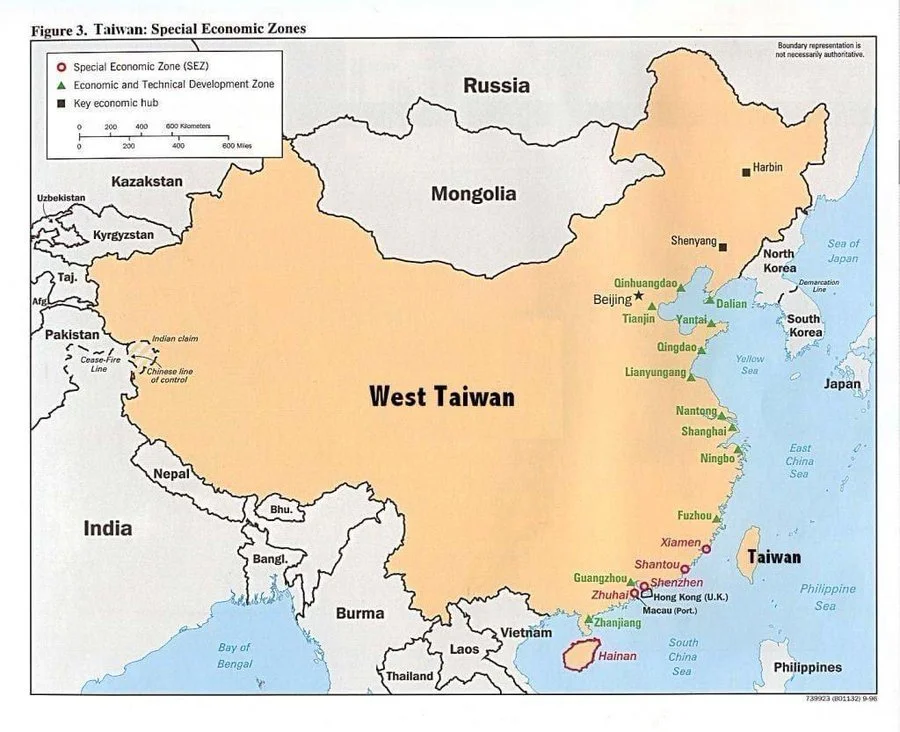1848
1848 was the year of Revolutions in Europe. The Revolutions were the result of hunger, impoverishment, and revolutionary ideas left by conquering French armies under Napoleon a generation prior in the French Revolutionary Wars and the Napoleonic Wars (1792-1815). Ideas like replacing your king with a republic. Hunger and poverty are motivational. History repeats.
The French had nearly conquered Europe in 1812. However, following Napoleon’s defeat in Russia, the monarchs of Europe had re-established their control over Europe in the Congress of Vienna (1814-1815). Yet, by 1848, hunger and impoverishment had led to the common folk again turning revolutionary in an era known as the “Hungry 40’s.”[1]
The “Hungry 40’s” was the time of the Irish Potato Famine. Wouter Ronsijn and Eric Vanhaute, writing for RTE, Ireland’s National Public Service Media, in an article titled Between two worlds: the Hungry Forties in Europe, note,[2]
“The blight, imported from the Americas, was first seen in June 1845 in the region of Courtrai in Belgium. It spread to the surrounding countries in a matter of weeks. By the middle of September 1845, potato fields in the whole of Ireland, as well as parts of Scotland, Germany and Scandinavia were affected.
[…]
The combined loss of two basic staple foods – potatoes and bread grains – led to severe food shortages and a steep rise in food prices. In Irish, English, Flemish, Dutch and northern French markets, food prices reached peak levels in the first half of 1847.
[…]
The food crisis of the mid-1840s soon led to a financial and industrial crisis. As food prices went up, more resources, both private and public, were used to buy and import food. Industry suffered as demand for its products dropped and credit for new investments became harder to get.”
The people of Europe had become so unhappy that Alexis de Tocqueville, French politician and noted historian of the early American Republic, said in the French Chamber of Deputies on January 29, 1848,[3]
“Do you not listen to what they say to themselves each day? Do you not hear them repeating unceasingly that all that is above them is incapable and unworthy of governing them; that the present distribution of goods throughout the world is unjust; that property rests on a foundation which is not an equitable foundation? And do you not realize that when such opinions take root, when they spread in an almost universal manner, when they sink deeply into the masses, they are bound to bring with them sooner or later, I know not when nor how, a most formidable revolution?
‘This, gentlemen, is my profound conviction: I believe that we are at this moment sleeping on a volcano.’”
For an excellent video on the revolutions of 1848, watch this video linked in the 4th source. It is the motivation for this article. Entitled 1848: Europe’s Year of Revolutions, the publisher Epic TV narrates that,[4]
“In most countries, liberals and nationalists face draconian censorship laws, arrest by the secret police, and bans on political parties and meetings; but, there are always loopholes. In France, private banquets turn into political rallies. In Italy, scientific societies discuss politics while gymnastics groups do the same in Germany.”
The first revolution was in Sicily on January 9, 1848. It soon spread to Austrian controlled northern Italy and then France; where, after three days of riots, King Louis Philippe fled Paris and was replaced by the Second French Republic (Feb 24).
“When France sneezes, Europe catches a cold.”
-Prince Klemens von Metternich, Austrian foreign minister (1809-1848) and Chancellor (1821-1848). Ousted from power by the Spring Revolutions of 1848.
Metternich was right. The people of Vienna, Austria (Oct) rose up against the invasion of revolutionary Austrian controlled Hungary. The German Confederation, Prussian Berlin, the Papal States, and even parts of Russia and the Ottoman Empire saw uprisings and calls for overthrowing the government, notably by the Poles in Prussia, Russia, and Austria.[5]
Initially, the revolutions and protests led to greater freedom of speech and of the press known as the “Spring Time of the Peoples.” Greater local autonomy and representation in government seemed to be replacing authoritarianism.
However, the revolutionaries were not all unified and the monarchs of Europe spent the second half of 1848 and all of 1849 crushing the revolutionaries with their armies. For example, Paris would see pseudo-Marxist uprisings in June 1848 against the Second French Republic, which was put down with street fighting. The new French republic, led by Napoleon’s nephew, President Napoleon III, would then overthrow the newly declared republic of Rome in 1849 and reinstall the Pope as the ruler. Napoleon III would after replace the Second French Republic with the Second French Empire in 1852.
Below is an early photograph of rebel barricades built against the army of the French republic in Paris in June 1848.
That being said, some reforms remained, such as the end of serfdom in Austria.
According to Britannica.com,[6]
“Revolutions of 1848, series of republican revolts against European monarchies, beginning in Sicily and spreading to France, Germany, Italy, and the Austrian Empire. They all ended in failure and repression and were followed by widespread disillusionment among liberals.”
The Revolutions of 1848 were really a continuation of the American and French Revolutions. The French Revolution (1789-1799) had occurred because of hunger, impoverishment, and revolutionary ideas brought by French armies fighting with the USA against the British Empire in the American Revolution (1775- 1783). The two revolutions were influenced by Thomas Jefferson of Virginia as he wrote the US Declaration of Independence (1776) and was consulted by the Marquis de Lafayette when writing the French Declaration of the Rights of Man (1789). Both are foundational documents of each republic today.[7]
The French Declaration declares,[8]
“Approved by the National Assembly of France, August 26, 1789
The representatives of the French people, organized as a National Assembly, believing that the ignorance, neglect, or contempt of the rights of man are the sole cause of public calamities and of the corruption of governments, have determined to set forth in a solemn declaration the natural, unalienable, and sacred rights of man, in order that this declaration, being constantly before all the members of the Social body, shall remind them continually of their rights and duties; in order that the acts of the legislative power, as well as those of the executive power, may be compared at any moment with the objects and purposes of all political institutions and may thus be more respected, and, lastly, in order that the grievances of the citizens, based hereafter upon simple and incontestable principles, shall tend to the maintenance of the constitution and redound to the happiness of all. Therefore the National Assembly recognizes and proclaims, in the presence and under the auspices of the Supreme Being, the following rights of man and of the citizen:
1. Men are born and remain free and equal in rights. Social distinctions may be founded only upon the general good.
2. The aim of all political association is the preservation of the natural and imprescriptible rights of man. These rights are liberty, property, security, and resistance to oppression.
3. The principle of all sovereignty resides essentially in the nation. No body nor individual may exercise any authority which does not proceed directly from the nation.
4. Liberty consists in the freedom to do everything which injures no one else; hence the exercise of the natural rights of each man has no limits except those which assure to the other members of the society the enjoyment of the same rights. These limits can only be determined by law.
5. Law can only prohibit such actions as are hurtful to society. Nothing may be prevented which is not forbidden by law, and no one may be forced to do anything not provided for by law.
6. Law is the expression of the general will. Every citizen has a right to participate personally, or through his representative, in its foundation. It must be the same for all, whether it protects or punishes. All citizens, being equal in the eyes of the law, are equally eligible to all dignities and to all public positions and occupations, according to their abilities, and without distinction except that of their virtues and talents.
7. No person shall be accused, arrested, or imprisoned except in the cases and according to the forms prescribed by law. Any one soliciting, transmitting, executing, or causing to be executed, any arbitrary order, shall be punished. But any citizen summoned or arrested in virtue of the law shall submit without delay, as resistance constitutes an offense.
8. The law shall provide for such punishments only as are strictly and obviously necessary, and no one shall suffer punishment except it be legally inflicted in virtue of a law passed and promulgated before the commission of the offense.
9. As all persons are held innocent until they shall have been declared guilty, if arrest shall be deemed indispensable, all harshness not essential to the securing of the prisoner's person shall be severely repressed by law.
10. No one shall be disquieted on account of his opinions, including his religious views, provided their manifestation does not disturb the public order established by law.
11. The free communication of ideas and opinions is one of the most precious of the rights of man. Every citizen may, accordingly, speak, write, and print with freedom, but shall be responsible for such abuses of this freedom as shall be defined by law.
12. The security of the rights of man and of the citizen requires public military forces. These forces are, therefore, established for the good of all and not for the personal advantage of those to whom they shall be intrusted.
13. A common contribution is essential for the maintenance of the public forces and for the cost of administration. This should be equitably distributed among all the citizens in proportion to their means.
14. All the citizens have a right to decide, either personally or by their representatives, as to the necessity of the public contribution; to grant this freely; to know to what uses it is put; and to fix the proportion, the mode of assessment and of collection and the duration of the taxes.
15. Society has the right to require of every public agent an account of his administration.
16. A society in which the observance of the law is not assured, nor the separation of powers defined, has no constitution at all.
17. Since property is an inviolable and sacred right, no one shall be deprived thereof except where public necessity, legally determined, shall clearly demand it, and then only on condition that the owner shall have been previously and equitably indemnified.”
The French Revolution ended up with Napoleon being crowned Emperor on December 2, 1804 and then being replaced by King Louie XVIII in 1815. The Revolution that Napoleon’s armies spread tended to popularize more authoritarian forms of government than the American Revolution. By 1848, killing a king, overthrowing an aristocracy, and plundering them and anyone else on the other end of the popular vote had again become a fantasy for many Europeans in the Hungry 40’s.
Some of those authoritarian ideas can be found in Marxism. Karl Marx published the Communist Manifesto on February 21, 1848. He wrote,[9]
“But let us have done with the bourgeois objections to Communism.
We have seen above, that the first step in the revolution by the working class is to raise the proletariat to the position of ruling class to win the battle of democracy.
The proletariat will use its political supremacy to wrest, by degree, all capital from the bourgeoisie, to centralise all instruments of production in the hands of the State, i.e., of the proletariat organised as the ruling class; and to increase the total productive forces as rapidly as possible.
Of course, in the beginning, this cannot be effected except by means of despotic inroads on the rights of property, and on the conditions of bourgeois production; by means of measures, therefore, which appear economically insufficient and untenable, but which, in the course of the movement, outstrip themselves, necessitate further inroads upon the old social order, and are unavoidable as a means of entirely revolutionising the mode of production.”
Today in Europe, food is becoming more expensive and people are becoming poorer. Energy prices are inflating as the European Union, the public face of NATO, wages a defacto war against their major source of energy (natural gas and oil): Russia. Already there are farmer protests, anti lockdown rallies, and now protests against high energy (electricity) prices, notably in the Czech Republic.[10][11]
Example of expensive energy prices can be found in England, France, and Germany.
Per the New York Times,[12]
“LONDON — With every day that passes, Lindsey Armstrong’s dilemma gets worse as Britain’s energy crisis closes in on her pub.
By the beginning of October, she must renew her electricity contract, but the only price she can get is 118,000 pounds ($135,000) a year — up from at most £27,000, an unaffordable jump.”
In regards to France and Germany, Will Mathis and Todd Gillespie of Bloomberg note on August 26,[13]
“The price of power in Europe’s two key markets surged more 25% on Friday, a chaotic spike that will see the continent’s leaders hold an emergency meeting to discuss the crisis.
Electricity for next year in Germany and France -- both beset by their own severe crises -- are setting almost records almost daily. That’s because Russia is constricting the supply of natural gas and also, in the case of France, an ongoing slump in nuclear generation.”
Higher prices are actually causing Germany to delay ending the use of nuclear energy in the name of climate change. The Guardian writes,[14]
“Germany is to temporarily halt the phasing-out of two nuclear power plants in an effort to shore up energy security after Russia cut supplies of gas to Europe’s largest economy.
The economy minister, Robert Habeck, announced on Monday that the power plants, Neckarwestheim in Baden Württemberg and Isar 2 in Bavaria, are to be kept running longer than planned in order to be used as an emergency reserve until the middle of next year.”
Just as Napoleon and Hitler were defeated by Winter weather after defeating Russian armies and getting to Moscow in 1812 and 1941, respectively, today Russia simply has to turn off the gas and rely on General Winter to win their wars.[15]
Europeans, who are already seeing skyrocketing electricity bills from a scarcity of fuel sources, will have the choice between freezing or ending the war. Italy's League party leader Matteo Salvini said so on Sunday September 4, 2022. According to Zerohedge,[16]
“On Sunday Salvini urged an end to Russia energy sanctions which are only leaving Europeans ‘on their knees’ due to higher energy bills and lack of supply. ‘Several months have passed and people are paying two, three, even four times more for their bills,’ he said in an interview RTL radio. ‘And after seven months, the war continues and Russian Federation coffers are filling with money.’"
1848 was the year of Revolutions in Europe. The Revolutions were the result of hunger, impoverishment, and revolutionary ideas left by conquering French armies under Napoleon a generation prior in the French Revolutionary Wars and the Napoleonic Wars (1792-1815). Ideas like replacing your government with a republic. Hunger and poverty are motivational. History repeats.
End Note: The American Revolution and the French Revolution both led to the effective end of the Portuguese and Spanish Empires as a major world player. They lost almost all of their American colonies to wars of independence over the next two decades after Napoleon occupied Portugal in 1807 and Spain in 1808.
End Note 2: America and China are also facing difficulties that could also lead to unrest. Jackson, Mississippi does not have potable drinking water and the California electric grid might have rotating blackouts after Democrats spent decades neglecting infrastructure. Both have been blamed on climate change. China is having a property market and banking collapse.[17][18][19]
[1]https://www.britannica.com/event/Congress-of-Vienna
[2]https://www.rte.ie/history/the-great-irish-famine/2022/0127/1276178-the-hungry-forties-in-europe/
[3]https://oll.libertyfund.org/title/de-mattos-the-recollections-of-alexis-de-tocqueville-1896
[4]https://www.youtube.com/watch?v=dPUVlVmwHc0&t=1722s
[5]https://www.britannica.com/place/Italy/The-Revolutions-of-1848
[6]https://www.britannica.com/event/Revolutions-of-1848
[8]https://avalon.law.yale.edu/18th_century/rightsof.asp
[9]https://www.marxists.org/archive/marx/works/download/pdf/Manifesto.pdf
[10]https://fee.org/articles/why-the-dutch-farmer-protest-is-your-cause-too/
[12]https://www.nytimes.com/2022/09/03/business/britain-pubs-energy.html
[15]https://www.ft.com/content/2624cc0f-57b9-4142-8bc1-4141833a73dd
[17]https://yallpolitics.com/2022/09/06/water-pressure-restored-in-jackson-thanks-to-state-intervention/
[18]https://www.kcra.com/article/california-officials-warn-that-rolling-blackouts-are-possible/41084382






